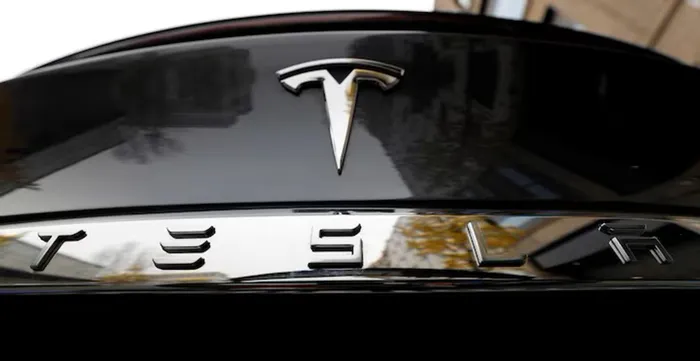Tesla’s sales fall most in a decade in another rough quarter

Tesla fell short of Wall Street’s expectations in one of the automaker’s worst quarters in years
Image: File
Tesla fell short of Wall Street’s expectations in one of the automaker’s worst quarters in years, a sign of the toll that rising competition and a backlash against CEO Elon Musk have taken on the company.
Adjusted earnings were 40 cents per share, Tesla said Wednesday in a statement, just below the average analyst estimate. Revenue fell 12% to $22.5 billion (R396bn), the sharpest decline in at least a decade.
Still, the report was free of new bombshells and the company said it continues to move forward with robotaxi and affordable-vehicle plans, providing a measure of relief for investors. That comes “despite a sustained uncertain macroeconomic environment resulting from shifting tariffs, unclear impacts from changes to fiscal policy and political sentiment,” Tesla said.
The revenue drop was due to a decline in vehicle deliveries, lower regulatory credit revenue and a lower average selling price for its cars. Tesla also reported a decline in energy generation and storage revenue. The company did see a boost from the business segment that includes its supercharging network.
The shares were little changed at 4:48 p.m. in extended trading in New York, erasing an earlier gain. The stock’s value has fallen 18% since the start of the year through Wednesday’s close but has largely rebounded from lows in March and April.
Some investors are looking past Tesla’s uneven financial results and toward Musk’s promises of a future built around artificial intelligence, humanoid robots and self-driving technology.
“If one thinks Tesla is at its core just an auto business, then the results were poor,” Adam Crisafulli, founder of the market intelligence firm Vital Knowledge, said in a research note. “If one thinks Tesla is an AI/robotics juggernaut, then you will probably feel the same about its prospects after the Q2 release as you did before.”
Polarization
Tesla’s brand has become increasingly polarizing following Musk’s support of President Donald Trump. During his brief role helping the administration, Musk’s attempts to slash government spending generated criticism from many of Tesla’s traditionally left-leaning consumers, while some investors worried the project was a distraction. A number of analysts have adjusted their expectations downward in recent weeks.
Revenue from regulatory credits - an area that has become a significant revenue stream for the company - fell more than 26% to $439 million in the second quarter. That’s down from $595m in the first quarter and $890m in the same period a year earlier.
That income is expected to drop sharply as the Trump administration eliminates penalties for automakers that fail to meet federal fuel economy standards.
Tesla reported gross margin - a gauge of profitability - that exceeded the average estimate.
Investors are still eager for more details on robotaxis’ path forward, including how quickly the service can grow in Austin and go to other cities. The company said it aims to further improve and expand the service, but didn’t give timelines or specific locations.
BLOOMBERG